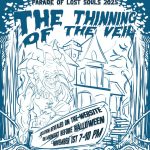Thalia Otamendi: Concussion Patient Puts Her Mind to Enhancing Care
Miss604 is the proud Blog Sponsor of VGH & UBC Hospital Foundation through the Miss604 Health Check Series. The following has been contributed by their team.
Thalia Otamendi: Concussion Patient Puts Her Mind to Enhancing Care
“I just couldn’t get better. I tried to go to work, but I couldn’t concentrate. Everything was too bright, too noisy, and it was all very overwhelming. I didn’t know what was wrong with me — I was scared.”
Thalia Otamendi loved soccer. Ever since she moved to Canada from Mexico when she was 10 years old she was always on the field, playing, practicing and competing. But over the years the sport took its toll on her body, and shortly after completing her undergrad she suffered a serious concussion while playing.
Modern problems require modern solutions
At first, Thalia thought the symptoms would go away on their own. But they only grew worse. After a few weeks she went to see local care providers for help, who told her to stay indoors in dark rooms until the symptoms subsided. This went on for months.
“I was feeling so overwhelmed, anxious and depressed,” says Thalia. Her mental and physical health was steadily declining. She felt increasingly isolated and had no idea how to recover. That is until she met clinician-scientist Dr. William Panenka, a leading traumatic brain injury and concussion expert at VGH and UBC Hospital.
From patient to researcher
Thalia was so grateful for Dr. Panenka’s care that she has since gone on to acquire a Master’s in Kinesiology from UBC. Thalia is now a PhD student studying psychological effects in concussion patients. “I don’t want other people to live through what I had to live through,” says Thalia. “That’s why my research is focused on the psychological component of concussion treatment. It’s a piece we’re missing right now, and I want to change that.”
Concussion Facts, Signs and Symptoms
Did you know?
- An estimated 25% of mild traumatic brain injury patients develop a mental health condition within three months of their injury. These mental health factors triple the risk of long-term disability for these patients.
- Brain injury is the leading cause of death and disability for Canadians under the age of 40.
- Sports and recreational activities are important risk factors for concussion. Cycling, playground activities and hockey are the greatest contributors.
If you experience these symptoms, seek help from a doctor immediately:
- neck pain
- double vision
- loss of consciousness
- seizure or convulsion
- regular vomiting
- headaches that grow more severe
- weak, tingling or burning feeling in arms and legs
- feeling overwhelmed, anxious or depressed
Learn more about concussions and recovery »
Brain Breakthroughs
1 in 3 Canadians will be affected by brain injury, disease, or disorder. Help patients like Thalia by supporting the Brain Breakthroughs campaign.
Brain Breakthroughs aims to solve difficult challenges in brain health, with a goal of raising $35 million to expand knowledge and enhance care in traumatic brain injuries, concussion, stroke, Alzheimer’s, dementia, Parkinson’s, epilepsy, neuromuscular diseases, MS and more.
Follow the VGH & UBC Hospital Foundation on Facebook for more info and updates.












